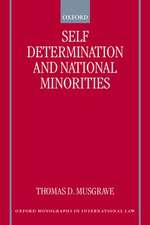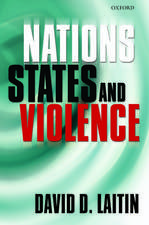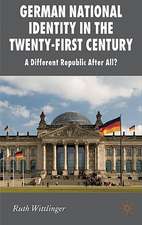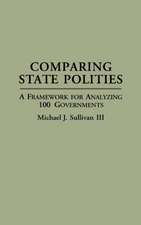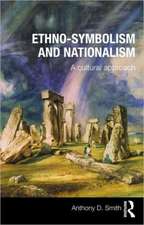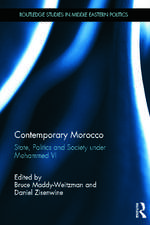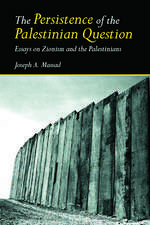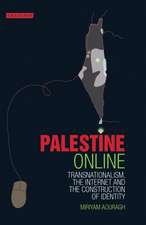The Emergence of Nationalist Politics in Morocco: The Rise of the Independence Party and the Struggle Against Colonialism After World War II
Autor Daniel Zisenwineen Limba Engleză Hardback – 20 sep 2010
Preț: 714.51 lei
Preț vechi: 1027.66 lei
-30% Nou
Puncte Express: 1072
Preț estimativ în valută:
136.72€ • 142.47$ • 113.20£
136.72€ • 142.47$ • 113.20£
Carte tipărită la comandă
Livrare economică 03-17 aprilie
Preluare comenzi: 021 569.72.76
Specificații
ISBN-13: 9781848853232
ISBN-10: 1848853238
Pagini: 272
Dimensiuni: 138 x 216 x 28 mm
Greutate: 0.48 kg
Editura: Bloomsbury Publishing
Colecția I.B.Tauris
Locul publicării:London, United Kingdom
ISBN-10: 1848853238
Pagini: 272
Dimensiuni: 138 x 216 x 28 mm
Greutate: 0.48 kg
Editura: Bloomsbury Publishing
Colecția I.B.Tauris
Locul publicării:London, United Kingdom
Notă biografică
Daniel Zisenwine is Research Fellow at The Moshe Dayan Center for Middle Eastern and African Studies, Tel Aviv University.
Cuprins
IntroductionChapter 1: The Nationalist Movement in French Morocco during World War II 1.1: Moroccan Nationalism in the 1930s1.2: Moroccan Nationalism during World War II1.3: Moroccan Nationalism at the End of World WarChapter 2: The Establishment of the Istiqlal Party and the 1944 Riots2.1: Moroccan Nationalism's Renewed Vitality and the Istiqlal's Establishment 2.2: The Party Platform and its Publication2.3: The 1944 RiotsChapter 3: The Istiqlal in the Aftermath of the 1944 Riots3.1: Coping with the Riots' Outcome3.2: The French Reform Initiative and the Resumption of Party ActivityChapter 4: The Istiqlal's Social Initiatives4.1: Towards New Activities4.2: The Party's Social Activities and their MeaningChapter 5: The Istiqlal's Ties with the Sultan: The Rise of a National Leader 5.1: The Relations between the Sultan and the French5.2: The Relations between the Sultan Sidi Muhammad and his Subjects 5.3: The Sultan's Relations with the Nationalist Movement and the IstiqlalChapter 6: Attempts to Revise French Policies: Eirik Labonne's Reform Efforts6.1: Background and Reactions to Labonne's Appointment6.2: Labonne's Policies upon Assuming Office: The Release of Imprisoned Nationalist Leaders6.3: Labonne's Reform Plans and their ImpactChapter 7: A New Stage in Nationalist Politics: The Sultan's Visit to Tangier7.1: Tangier in Modern Moroccan History7.2: The Sultan's Visit7.3: The Visit's Impact on French Policy and the IstiqlalChapter 8: An Intensified Nationalist Struggle: The Crises of 1950-518.1: The Istiqlal and the Moroccan Working Class 8.2: New Faces among the Istiqlal's Leadership: The Rise of Mehdi Ben8.3: The Sultan's Deteriorating Relations with the ResidencyChapter 9: The Nationalist Struggle's Turning Point: The Sultan's Deposition9.1 Increased Tension between the Residency, the Monarchy, and the Istiqlal9.2 The Sultan's Deposition9.3 The Istiqlal and the CrisisConclusion





